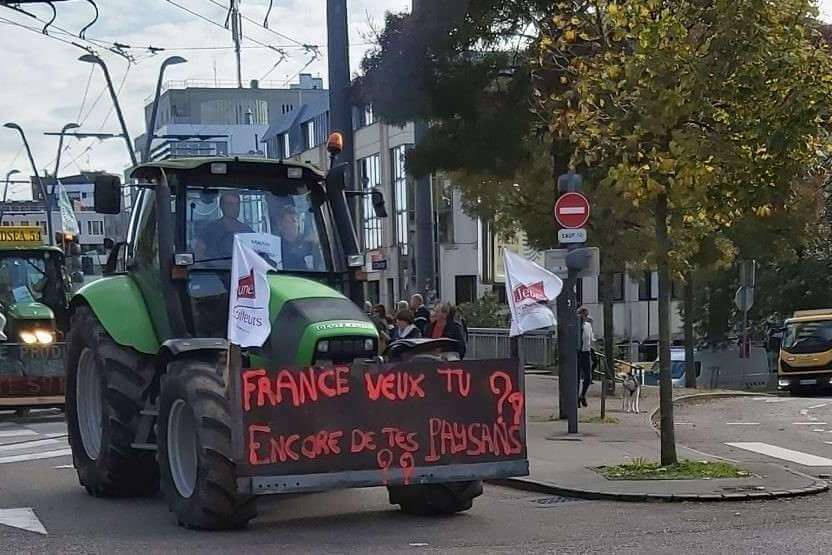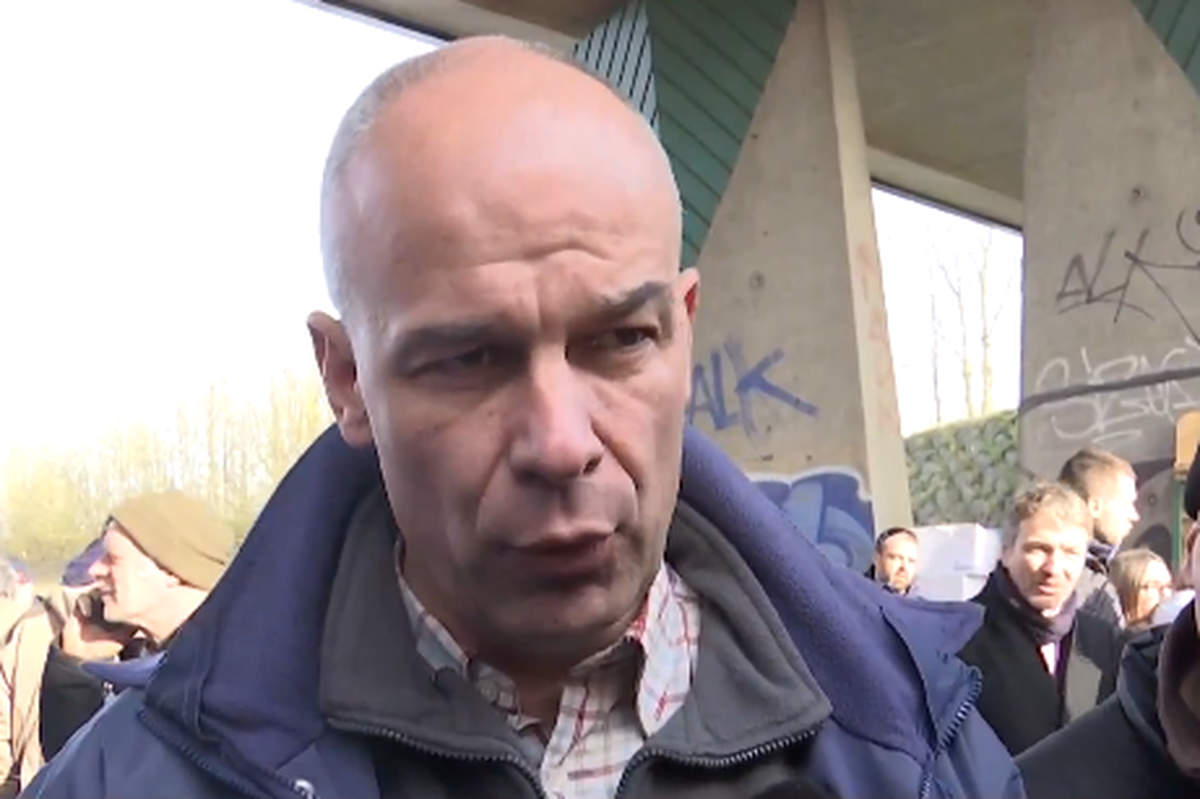
It’s hard to understand the position of the FNSEA, which called for a meeting at the capital’s headquarters on Monday, when you know that its leaders are close to the government. Like Arnaud Rousseau, head of a multinational food company…
The Prime Minister’s soothing words over a straw bale on Friday have not calmed the anger of all farmers. The majority unions, FNSEA and JA, have announced “a siege of the capital” for this Monday, January 29, 2024 “for an indefinite period”, according to their press release. “All major roads leading to the capital will be cut off by farmers”, they say.
Will the Rungis market be blocked?
Following a call from the Coordination rurale du Lot-et-Garonne, other angry farmers have decided to block Rungis, the largest agricultural market in France and even Europe. This prompted an immediate reaction from Franck Delvau, President of the UMIH (Union des métiers de la restauration), for whom the blockade of Rungis would jeopardize 30,000 restaurants, bars and cafés in the Ile-de-France region.
Not to mention the massive traffic jams that would paralyze the capital and create indescribable chaos. Gabriel Attal’s measures have lifted some of the roadblocks. But not all. Because not all farmers have the same interests.
Standards and unfair competition
French agriculture is under the dual tutelage of France and Brussels, says Medef President Patrick Martin, who is imposing ever more standards and constraints on French farmers. At the same time, France imports 60% of what it consumes, notably fruit and beef, but not exclusively. Yet imported products, sometimes from European countries, do not necessarily meet the same health and environmental requirements as those imposed on French farmers (Spanish olive oil, Brazilian or Ukrainian chicken, meat from Australia, etc.).
Substantial CAP aid
In an attempt to calm things down, the head of the FNSEA asked the government to respond to a hundred or so demands, including the immediate payment of European subsidies, due since October, and the easing of environmental standards. These last two demands are not neutral on the part of the head of the powerful farmers’ union, who will be elected in the spring of 2023. Arnaud Rousseau, 50, farms 700 hectares of rapeseed, sunflower, wheat and beet with his wife in Trocy-en-Multien, Seine-et-Marne, a commune where he has been mayor since 2014. As a result, he benefits from substantial CAP subsidies.
Chairman of the Avril holding company

Arnaud Rousseau, a former reservist and graduate of the European Business School in Paris, began his career on the financial markets in agricultural commodities brokerage and trading, before setting up on the family farm in 2002.
But the farmer from Seine-et-Marne is also a shrewd businessman at the head of five companies and a holding company. Avril, one of Europe’s most powerful agri-food groups with sales of €9 billion by 2021, doubles as an investment company. “In February 2017, Arnaud Rousseau became President of the French Federation of Oilseed and Protein Producers (FOP). He is also appointed Chairman of the Board of Avril Gestion, following the sudden death of Xavier Beulin. He thus becomes the first representative of agricultural shareholders within Avril, the industrial and financial group of the French vegetable oil and protein sector.
In short, a big CAC 40 boss. A far cry from the goat farmer of Larzac…
Le président de la FNSEA est aussi président du groupe Avril.
Vous comprenez que ce pauvre homme se préoccupe jour et nuit des agriculteurs…
Comment ces derniers peuvent-ils se laisser trimbaler par un tel personnage ?
Un mystère… pic.twitter.com/bWpFrpnBcJ— 🇫🇷Jacques Clostermann (@jaclostermann) January 28, 2024